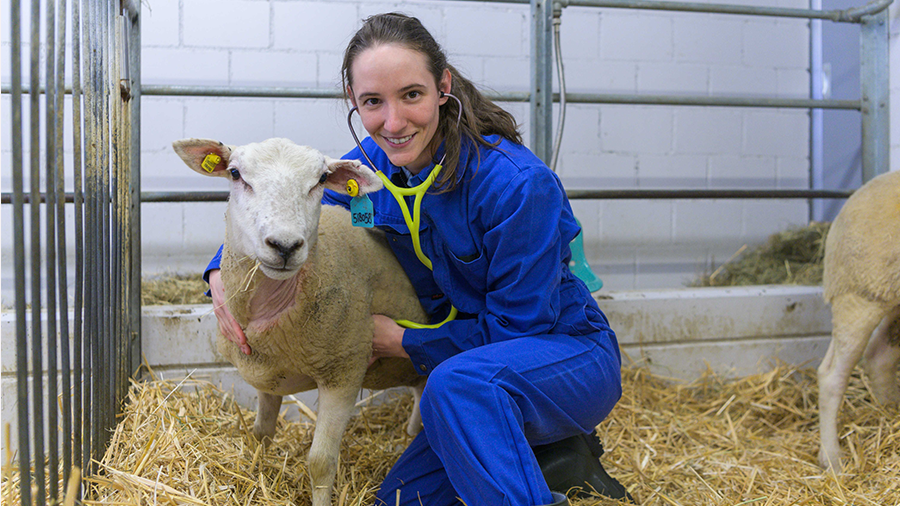Women in STEMM series
Caroline Constant, preclinical surgeon and project leader at the AO Research Institute Davos (ARI)

Caroline Constant, a doctor of veterinary medicine and a mechanical engineer, is a preclinical surgeon and project leader at the AO Research Institute Davos (ARI), where her engineering expertise complements her work as surgeon and research scientist. Here, she discusses her career trajectory—and her passion for ARI’s mission of advancing orthopedic patient care through innovative research and development.
I always wanted to become a veterinarian. I love animals and wanted to do more for them. In college, I debated whether to go into engineering or veterinary medicine and in fact was offered—and declined—a full aerospace engineering scholarship because I realized that veterinary medicine is what I love doing. My work at ARI brings together my passions for engineering and veterinary medicine in service of both animal and human patients.
I wear two hats at ARI: I work as a preclinical surgeon and as a project leader. As a preclinical surgeon, I am responsible for many of the surgeries, mainly orthopedic surgeries on rabbits, mice, rats, sheep and minipigs. I also have projects that I supervise as a project leader for projects brought over from other AO services such as infection, biomechanics, regenerative medicine or projects proposed by ARI.
"I do believe we need more women and girls in science but at the same time, I’m not sure if we need to encourage them more or simply stop discouraging them."
Caroline Constant, preclinical surgeon and project leader at the AO Research Institute Davos (ARI)
I first came to the AO in March 2019 for what was supposed to be an eight-month fellowship; during the fellowship, I was offered the preclinical surgeon position which I began in August 2019. I had discovered the AO during my surgery residency at the University of Montreal, where I was required to take the AO VET Course—Principles in Equine Fracture Management. What I have discovered in the AO is a big family of people who share my passion for research, education, and, ultimately, improving patient care. My ARI colleagues are really open-minded and actively encourage us to visit the other departments and the clinical divisions, and this makes me a better surgeon. It all starts with the AO mindset, the AO mission: promoting excellence in patient care and outcomes in trauma and musculoskeletal disorders.
My pathway into research was my frustration with cases in which we didn’t have implants that were big enough or strong enough for some of my patients. I thought, “We can go to the moon, but we can’t make an implant strong enough for a large animal.” And I guess I’m stubborn: When I’m told that I can’t do something—that it’s impossible—I want to do it and prove that it can be done.
I do believe we need more women and girls in science but at the same time, I’m not sure if we need to encourage them more or simply stop discouraging them. It starts with choices adults make, like buying a chemistry kit for a boy and a doll for a girl, and assumptions we make about boys’ and girls’ abilities. It is important that we make sure that all children—girls or boys—know they can become surgeons.

